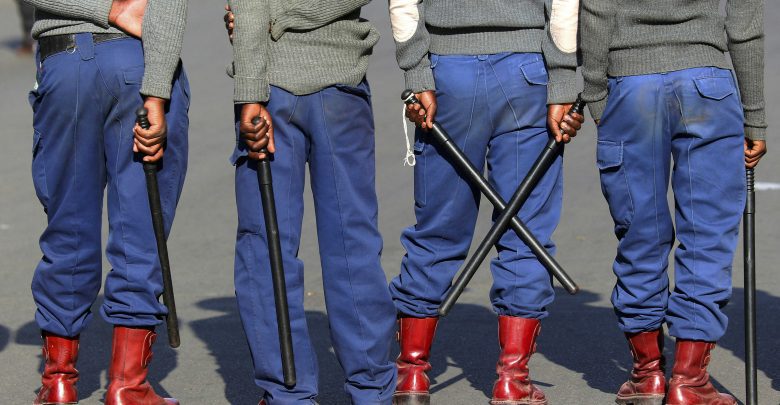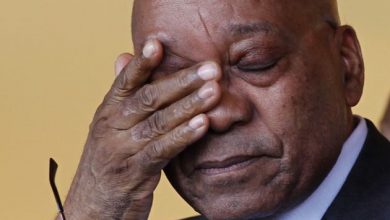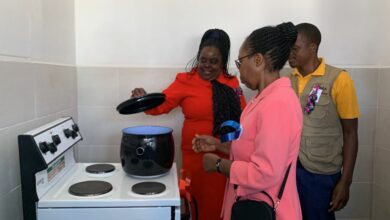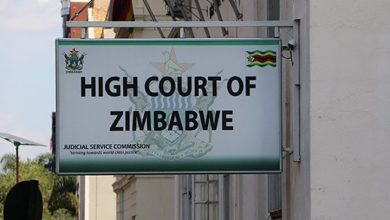Zim women bear brunt of state sponsored violence

Nobuhle Ndlovu of Lobengula West and Siphiwe Ndlovu of Saucerstown were among four people in Bulawayo who filed an assault complaint under case number (CR429/1/19) against the military and police in 2019.
The two women, both confessed sex workers, claimed they were assaulted on Herbert Chitepo Street by a group of police officers and soldiers.
Another complainant, Virginia Ncube, from Cowdray Park, informed the police at Bulawayo Central in the case number (CR431/1/19) that a soldier forced her to lie on the ground while he performed a sexual act on her, and then his colleagues stole $45 from her.
These incidents occurred during the #ZimbabweShutDown protests when soldiers and police allegedly attacked thousands of Bulawayo residents in response to looting and property destruction.
The following year, when Zimbabwe went into lockdown to control the spread of Covid-19, violence against women surged.
Sisters Ntombizodwa and Nokuthula Mpofu of Cowdray Park were viciously attacked by police officers while queuing outside a supermarket in May 2020.
In August 2020, another Bulawayo woman, Noxolo Maphosa, was abducted, tortured and sexually assaulted by state security operatives.
Maphosa’s torture was meant to force her relative, human rights activist Josphat Ngulube, known as Mzaca, who was wanted for his involvement in the July 31 protests, to come out of hiding.
The kidnapping and sexual exploitation of opposition female activists Joana Mamambo, Cecilia Chimbiri, and Netsai Marova in August 2020 fuelled the global #ZimbabweLivesMatter campaign.
On September 1, 2020, a number of Murehwa female informal vendors were detained and fined for cheering opposition leader Nelson Chamisa as he strolled through their market.
These are just a few examples that CITE investigated of how state apparatuses have acted violently against women.
Despite official denials that the army and police were not involved in any violent actions against civilians, the incidents described by these women paint a different picture.
These incidents demonstrate that the Zimbabwean State, as a concentrated reservoir of masculinist and patriarchal force, has long been at the forefront of women’s assault.
Whether it is police assault against sex workers or illegal operations on women in government hospitals, the State’s operations globally against women have tended to take all forms and shapes.
This violence is ironic in that civilians look to the State for safety – the judiciary, police, and other state security apparatus.
According to former co-minister of National Healing and Integration, Moses Mzila Ndlovu, the origins of violence against women dating back to April 18, 1980, when Zanu, as the state party, targeted women and other people in Matabeleland.
“During previous International Day of Peace commemorations in Lupane at Silwane, a woman testified she was locked up in a hut with 12 members of her family and set on fire by Gukurahundi operatives, representing the State,” he said.
“She was a small girl at the time and managed to escape despite being on fire. Gukurahundi operatives shot her. She still has 60 to 70 percent body burns and a bullet is stuck in her arm.”
Ndlovu said this incident occurred in 1983, but the state continues perpetrating acts of physical and sexual violence against women, 40 years later.
“This is the same State that was there in 1980. It is the same Zanu PF that is here today in 2023, doing exactly the same thing it did,” he said.
Mthwakazi Republic Party (MRP) leader, Mqondisi Moyo, said the State’s violence against women is a clear sign the Zanu PF regime has exploited state agencies and actors to maintain power.
“The current Zimbabwean President Emerson Mnangagwa was State Security Minister then responsible for the Central Intelligence Organisation (CIO) that was responsible for bashing, kidnapping and killing women,” he said.
“Uniformed Fifth Brigade soldiers, police and members of CIO were used to butcher innocent women. Pregnant women had their bellies ripped open.”
Moyo argued it has become increasingly evident that sexual assaults and harassment are orchestrated in order to subjugate women into submission, force them to embrace the status quo or scare them away from rebelling against the State.
A study by the Women’s Academy For Leadership and Political Excellence (WALPE) in 2020 titled ‘State of Women’s Rights and Well Being in the Era of Covid-19 in Zimbabwe’ spanning between March and September found women were the most affected by State violations.
“All these alleged abusers are the very custodians of law and order, who are looked up to by the citizens, which leaves women in a state of desperation as they have little or no hope of redress,” said the WALPE report.
State actors, according to political analyst Bernard Magugu, have always been involved in the brutalisation and suppression of women in Zimbabwe.
“Joice Mujuru (former vice president), became a victim of state actors. Margaret Dongo (former legislator), and members of Women Arise Zimbabwe (WOZA), have been brutalised by state actors such as the judiciary, police, media, and the military,” he noted.
“Thabitha Khumalo (former legislator), Thokozani Khupe (former deputy prime minister), Tsitsi Dangarembga (an author) have been victims of state actors to an extent that we believe that this political establishment is involved.”
Magugu cited the case of vice president, Constantino Chiwenga’s former wife, Mary Mubaiwa, as the most recent example of state actors abusing their power.
“Marital problems have spilt into political and government institutions whereby Mary cannot access medication, which is very sad. She cannot see her children, which is emotional and psychological abuse. Look at how she has been treated in the judiciary system and hasn’t been given enough time to defend herself in courts of law,” he said.
“She was even hauled to court when she was ill. She needed help but you find that even the media wasn’t doing much to fight for her rights.”
Magugu said when such situations occur, state actors are controlled by individuals rather than the government, which has policies set within the constitutional framework.
“So there is no doubt there is an individual who wants to settle personal scores against Mary Mubaiwa,” as he expressed regret that individuals overruled the constitution, legal institutions, and even the security establishment to “settle personal grudges developed out of marital grievances.”
Chairman of the Zimbabwean Community in South Africa, Nicholas Ngqabutho Mabhena, whose organisation deals with Zimbabweans who have fled the country for various reasons, said women are oppressed primarily in political institutions, making it difficult for them to compete for political office and gain power.
“There is violence, and women find it impossible to win primary elections to become councillors or Members of Parliament, let alone president. We watched how Mujuru and Khupe were treated when they were on the verge of becoming presidents of their respective political organisations,” he said.
“This is how women have been treated and continue to be treated.”
Mabhena encouraged the State to create an atmosphere in which women can compete and be elected to positions of power.
Mzila Ndlovu affirmed the way the State has treated women explains their lack of participation in the country’s political activities and cited rape as a political instrument used against female opponents.
“Women in Matabeleland were inserted with iron bars in their genitals and in Mberengwa in 2001, a Zanu PF state-sponsored bandit – Biggie Chitoro also inserted metal bars in the private parts of women,” Ndlovu said.
“If women know they are going to be arrested, she is likely to have a breast fondled by police officers representing the State. Women are afraid of being raped in custody, all these factors then reduce women participation in politics then you get surprised as a people, when less women run for office. Is that okay?”
He also expressed regret that Zimbabweans were selective in holding the State accountable for the numerous crimes committed against women.
“In our conscious of consciousness’, is it fair to close our eyes to past crimes committed by the state of Zimbabwe against women from Matabeleland? We ignore that and don’t talk about it passionately but want to be heard talking about violence passionately now because it has targeted the ex-wife of a current vice president,” he said, stressing it was hypocritical to seek justice while selecting or ignoring atrocities from the past.
Mzila Ndlovu also questioned how people expected to uproot violence without addressing the core causes.
“Violence will not end as long as Zanu PF is in power. We, the victims, are so divided on tribal lines and think it is okay when the State perpetrates violence against women in Matabeleland but not okay when the State kills Moreblessing Ali in Harare,” Ndlovu said, adding that this divided side or mentality of Zimbabweans caused the State to “watch with glee.”
Gender activists also point out that it is crucial to consider Zimbabwe’s pre-existing social structures and conditions in relation to this violence epidemic committed by the State.
Nozipho Zypo Moyo observed how patriarchal views of gender roles in both the public and private spheres of society contribute to the “prevalence of sexual harassment and assault through societal-level policing of women’s behaviour and the prevalent idea that women who survive sexual harassment or assault are at least partially to blame.”
The Story is published with support from the Voluntary Media Council (VMCZ) and the Embassy of Canada in Zimbabwe under the Investigative Journalism Fund Programme.





